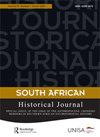‘The Root of All Evil?’: Cash Boom, Trader Misfeasance, and Poverty in World War II Bechuanaland Protectorate
IF 1
3区 历史学
Q1 HISTORY
引用次数: 0
Abstract
ABSTRACT Told here is a story of the manifestations of cash money’s unseen and unpredictable power in the expropriations of Bechuanaland Protectorate Africans by store owners or traders during World War II. Failure to secure essential commodities in a period when cash dominated the market and had become the motif of the colonial economy surprised even the colonial officials who had thought that the ensuing ‘cash boom’ would bring prosperity across the social divide. This article mines the extant war archives to retrieve the neglected history of the repercussions of the first-ever cash boom the Bechuanaland Protectorate experienced since the advent of cash during the nineteenth century. As many people gained access to more cash, traders of predominantly foreign descent hiked prices unduly, in most cases using the war as an excuse. The article addresses two mutually inclusive forms of trader misconduct. First, it explores the trajectory of profiteering as it spread from the urban areas to impact the initially unaffected rural peripheries during the war. Secondly, it demonstrates the differentiated ways in which a tripartite of conditional selling, price differentials, and food rationing became the driving forces of the ‘evil’ that was profiteering.“万恶之源?”第二次世界大战贝川纳保护国的现金繁荣、贸易不当行为和贫困
本文讲述的是第二次世界大战期间,商店老板或商人对贝古纳保护国非洲人的征用,这一事件体现了现金看不见的、不可预测的力量。在现金主导市场并成为殖民地经济主题的时期,无法确保基本商品的供应,甚至连殖民地官员都感到惊讶,他们本以为随之而来的“现金热潮”会给整个社会带来繁荣。本文挖掘了现存的战争档案,以检索自19世纪现金出现以来贝采纳兰保护国经历的第一次现金繁荣的影响的被忽视的历史。由于许多人获得了更多的现金,以外国血统为主的商人不恰当地抬高了价格,在大多数情况下,他们以战争为借口。这篇文章讨论了两种相互包容的交易不端行为。首先,它探讨了战争期间暴利从城市地区蔓延到最初未受影响的农村边缘地区的轨迹。其次,它展示了有条件销售、价格差异和食品配给这三方面的不同方式,它们成为了暴利这一“邪恶”的驱动力。
本文章由计算机程序翻译,如有差异,请以英文原文为准。
求助全文
约1分钟内获得全文
求助全文
来源期刊

South African Historical Journal
Multiple-
CiteScore
0.70
自引率
0.00%
发文量
37
期刊介绍:
Over the past 40 years, the South African Historical Journal has become renowned and internationally regarded as a premier history journal published in South Africa, promoting significant historical scholarship on the country as well as the southern African region. The journal, which is linked to the Southern African Historical Society, has provided a high-quality medium for original thinking about South African history and has thus shaped - and continues to contribute towards defining - the historiography of the region.
 求助内容:
求助内容: 应助结果提醒方式:
应助结果提醒方式:


